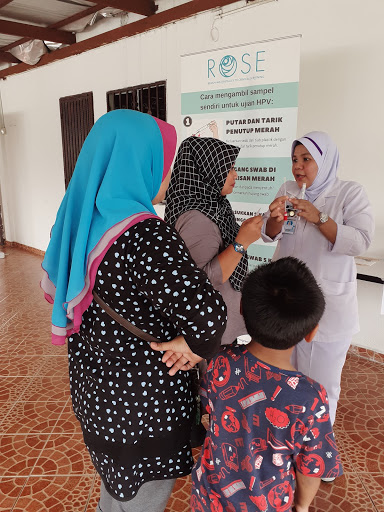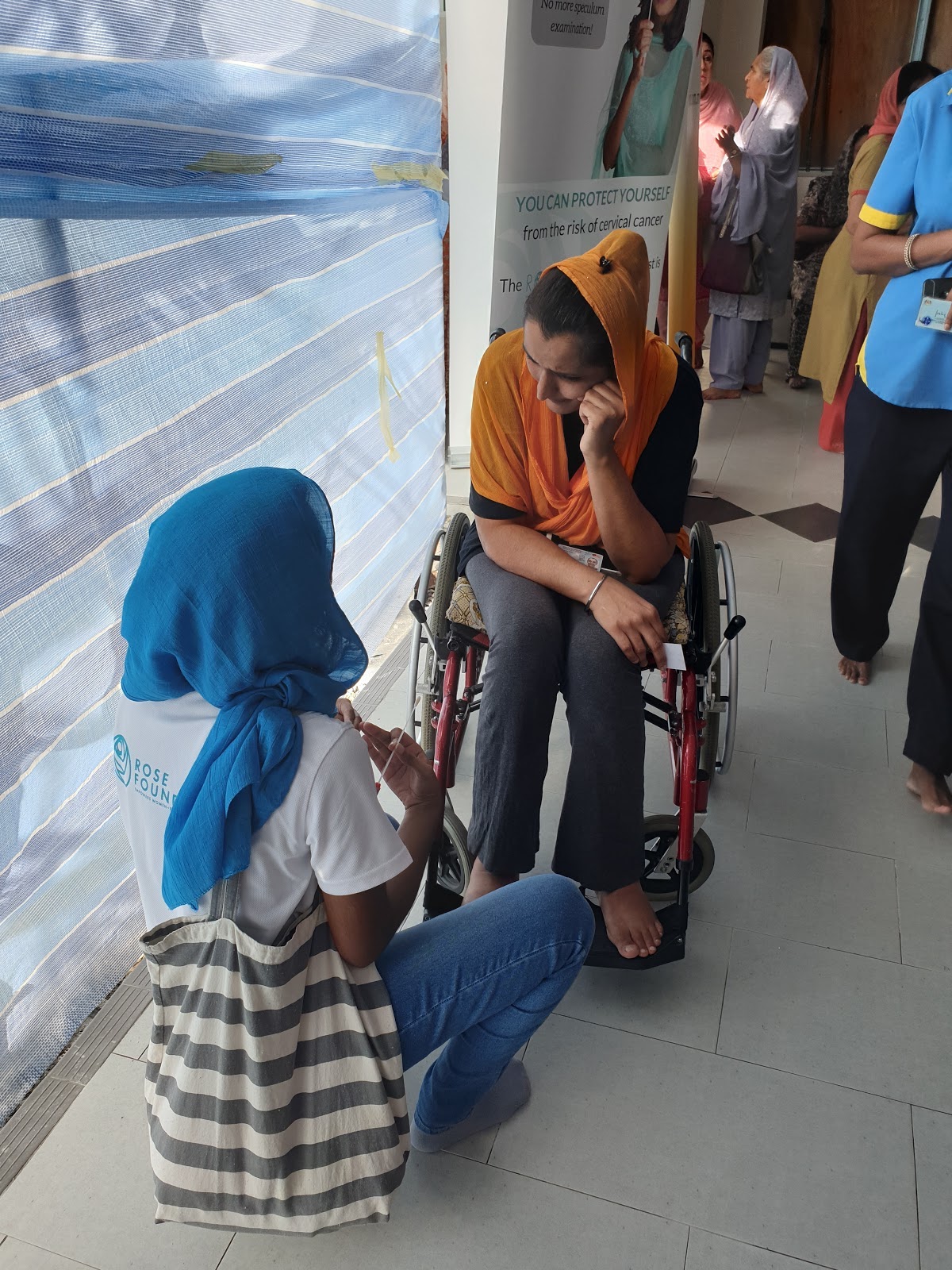Fear the pap smear? Self- sampling gives Malaysian women control
Cervical cancer screening is no woman’s idea of a good time. While it might save your life, there’s little else to enjoy about the experience. Fortunately, a collaboration between University of Malaya, Malaysia and VCS Foundation, Australia is making significant strides to reduce stress around cervical screening with a groundbreaking programme called ROSE (Removing Obstacles to cervical ScrEening).
Scaling up Program ROSE will be an important tool in Malaysia’s efforts to achieve the global cervical cancer elimination goal and save many women’s lives every year. Program ROSE is a revolutionary approach in cervical cancer screening which integrates self-sampling, HPV testing and an e-health platform. Malaysia is the first country globally to deliver this integrated cervical screening solution and provides a model for other jurisdictions in the ASEAN to follow.
Women carry out the simple procedure themselves by using a swab, ensuring privacy and avoiding the embarrassment and discomfort of a Pap smear carried out by a doctor at a clinic or hospital. Results of the HPV test and subsequent follow-up are communicated to the women via their mobile phones, and those with a positive test result are linked to a government hospital with appropriate expertise for follow-up. It has proven to be highly acceptable to women and empowers them to take steps to protect themselves from this preventable disease.
Cervical cancer screening is considered a challenge for many Malaysian women and the ROSE technique addresses two of the key obstacles: lack of time and discomfort. The program also ensures that any woman who tests positive for HPV, is adequately notified and treated. Professor Marion Saville, the co-founder of ROSE and the Executive Director of Australia’s VCS Foundation, has said that screening alone will not eliminate cervical cancer and that it is a “pathway that has to be followed through”.
Cervical cancer is one of the top three cancers diagnosed in Malaysian women. It is also one of the most treatable cancers if detected early, but an acute association with anxiety, fear or pain are common reasons for women to not present for screening. It’s also why almost 80% of cervical cancer cases are found at a late stage.
Since launching in January 2019, the ROSE programme’s less intrusive screening methods, and its use of digital technologies to communicate with patients, has seen the screening of more than 8,000 low-income women. This is a significant rise in the number of women screened for cervical cancer in Malaysia.
It’s been reported that less than 15% of women are screened regularly in the country because most women dread the standard pap smear, which is often considered embarrassing, invasive and even traumatic. It’s why ROSE takes a more holistic approach.
The programme delivers an integrated process from registration through to follow-up, by offering self-sampling, a validated high precision HPV DNA test and an online platform that permits sign up and assessment to be conducted through a mobile phone. The programme is anchored by the ROSE Contact Centre, which helps each woman navigate the health system and links her to a hospital where she can receive further advice if needed. What’s even better is that the ROSE approach only requires two tests per lifetime.
Most women who have tried ROSE have been impressed by the process. In fact, 95% of women preferred ROSE over the conventional pap smear; 97% of women screened have said that they would recommend the ROSE method to a friend; and 99% confirmed they would be screened through ROSE again.
‘I did it myself at the heath event organised by MPAJ Pandan Indah. Thank you MPAJ for the opportunity. Then I received the sms test result from ROSE. Thank you ROSE for being very patient in trying to reach me. All went very well and we were very happy with the entire process. A big thank you again to ROSE and Professor Woo for your passion in helping.’ ROSE patient
The programme has now been introduced in over 26 community locations and clinics in seven Malaysian states. The COVID-19 pandemic hasn’t stopped the programme either. ROSE has continued to screen women for cervical cancer by using appropriate social distancing measures.
Committed to community engagement, empowerment and women’s health, ROSE is on track to become s a model of excellence, So, what’s next?
In time, there are hopes that the programme can be extended throughout Asia, while locally ROSE is currently receiving support from the Etiqa Takaful & Insurance and Selangor Properties Berhad to bring the system to unscreened, under-screened and underprivileged women in Malaysia. The proposed national rollout of the programme will give more Malaysian women access to the screening method, detect any infections early and ultimately reduce cervical cancer rates across the country.
Do you think it’s time we all took action towards worldwide cervical cancer elimination? Join the movement and sign up to the campaign today. We’d also love to hear your feedback on this story, so please post your comments to us below. You’ll also find us on all the usual social channels.
Follow Conquering Cancer on


